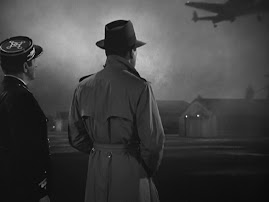By Rabbi Avraham Greenbaum
Torah Reading: Numbers 4:21-7:89
Haftara: Judges 13:2-25
THE LONGEST PARSHAH
Parshas NASO, with 176 verses, is the longest parshah in the whole Torah, and the Midrashic commentaries, particularly the aggadic Midrash Rabbah, are also exceptionally lengthy. It is fitting that this parshah is usually read on the Shabbos after the festival of Shavuos celebrating the Giving of the Torah, when our love of the Torah is renewed and we receive new vigor and energy to devote ourselves to our studies. We are now enjoying the longest days of the year, and the long Summer Shabbos should give us plenty of time to explore the beautiful mysteries of this Parshah.
* * *
NO "BEFORE" AND "AFTER" IN THE TORAH
As noted in a number of previous commentaries, the sequence of parshahs and sections in the Torah is not always chronological, and Parshas NASO is one of the prime cases.
The opening of our parshah, dealing with the census of the Levitical families, is a direct continuation of the previous parshah, BAMIDBAR, the closing section of which started the narrative of the Levitical census. The command to Moses to conduct the census of the people was given "on the first day of the SECOND month" of the year after the Exodus (Numbers 1:1) and Moses did so forthwith. After completion in parshas NASO of the account of the census, the Torah JUMPS BACK chronologically to the first day of the FIRST month of the year after the Exodus -- the day of the inauguration of the Sanctuary.
The chronological jump is not obvious immediately. However, the section after the Levitical census deals with commandments that relate to the newly inaugurated sanctuary: sending the ritually impure out of the camp, the sacrifices of the SOTAH (the wife suspected of infidelity), and the NAZIR (who vows not to drink wine, cut his/her hair or become defiled by the dead), the priestly blessing (which was given in the courtyard outside the Sanctuary, and was instituted by Aaron on the day of its inauguration). The lengthy closing section of NASO narrates in detail the dedications and sacrificial offerings of all the Princes of the Twelve Tribes of Israel on the twelve inaugural days of the Sanctuary, starting on the 1st Nissan. Although the date is not written explicitly in our parshah, it says: "It was on the day of the completion by Moses of the erection of the Sanctuary." (Numbers 7:1). We are already familiar with this most auspicious day from our studies in Exodus and Leviticus.
The Torah continues dwelling on 1st Nissan and associated themes into the following parshah, BEHA'ALOSCHA, and there the date is given explicitly: "And G-d spoke to Moses in the wilderness of Sinai in the second year after their going out from the Land of Egypt IN THE FIRST MONTH" (Numbers 9:1). Rashi (ad loc.) tells us that this verse indeed is the written proof that there is no "before" and "after" in the Torah.
In other words, the various parshahs and sections of the Torah are not necessarily arranged in chronological sequence but thematically. This indicates that adjacent passages in the Torah whose subjects may not on the surface appear to be interconnected do in fact have profound interconnections. This gives rise to the rabbinic method of interpreting passages in the Torah according to their SEMICHUS, "proximity" to one another. Our parshah contains a case in point in the rabbinic comment on why the section about the NAZIR, who vows to abstain from wine, comes directly after that about the SOTAH, the unfaithful wife. "Everybody who sees the damage done by and to the Sotah will want to abstain from wine, which is what brings to fornication" (Rashi on Numbers 6:2).
* * *
THE GIVING OF THE TORAH AND INAUGURATION OF THE SANCTUARY
As noted earlier, NASO is always read on the Shabbos after Shavuos, anniversary of the Giving of the Torah. Clearly there is a deep link between the Giving of the Torah and the Inauguration of the Sanctuary/Temple and its associated commandments, which is the theme of the greater part of NASO. On this, one of the longest Shabboses at the height of summer, when the world is in full bloom around us, the Torah keeps our minds focussed on the 1st of Nissan, the "New Year", time of rebirth, the day of the Consecration of the Sanctuary.
On the day the Sanctuary was consecrated, the Torah descended from Sinai with its awe, thunder, lightning and earthquakes and was brought in the golden Ark of the Covenant, under the wings of the Cherubs, into the ultimate serene tranquillity of the Holy of Holies. This was the vision of Jacob, the founding father who built the House of Israel: that the Torah should come down from its lofty heights and dwell inside the Sanctuary -- not only in the actual, external Sanctuary, but in the home of every Israelite and the heart of every Israelite. When we bring the Torah into our homes and our hearts, it becomes the vessel of peace and blessing that radiates light all around us, just as the blessing of the priests radiates from the Sanctuary (and today, during the priestly blessing in the synagogue, from before the Ark, housing the Torah scrolls): "May the Lord bless you and keep you.". For the study of Torah itself confers blessing. For the entire Torah is woven of the names of G-d, and "in every place where I shall cause My name to be mentioned I will come to you and bless you" (Exodus 20:21).
* * *
IN THE HOME AND IN THE HEART
At the center of parshas NASO are two lengthy sections that bring the Torah of the Sanctuary directly into our very homes and hearts: these are the sections dealing with the laws of the SOTAH, the wife suspected of infidelity, and the NAZIR, who vows to abstain from wine, cutting his/her hair and defilement from the dead.
At the very center of the true Torah home is the love between husband and wife, which is the very foundation of the BINYAN -- the "building" or structure of the family. True love between husband and wife is very jealous: true love brooks no outsiders and third parties. The unity of husband and wife must be complete, face to face, without a trace of a shadow in between.
It is hard even to speak of the purity of love between husband and wife in a world in which third parties are accepted as a normal part of life. It is this rampant immorality that breeds broken homes, broken hearts, children who grow up between one home and another, knowing little or nothing of family, roots and kinship.
Completely opposite is the morality emanating from the Ark of the Covenant in the Holy Sanctuary: "This is the Torah of the Sotah." Strange as it may seem ithe context of contemporary (im)morality, the ceremony of the Sotah, the wife suspected of marital infidelity, one of the most awesome rituals of the Temple, is intended as a bulwark of family purity.
In normal everyday life husbands and wives are constantly coming into contact with all kinds of other people in various different contexts, and it is only natural that relationships can form even in societies that are sexually segregated (as in Temple times) let alone in contemporary mixed society.
The Sotah ritual -- administering the bitter waters to the wife even as she protests her innocence in the face of suspicions of infidelity -- was intentionally very frightening to the woman involved and to all who saw it. Here we see the Temple, where the ritual would take place, as a kind of theatre where a spectacle is held up to the entire nation in order to teach a deep lesson.
The bitter waters are the truth-tester of the Torah (quite different from lie-detectors). Mixed with the water was earth from the floor of the Sanctuary (archetype of the Israelite home as it should be) and the dissolved ink of the letters of Torah verses and curses written on the scroll of the Sotah, including the holy name of G-d. What is the truth? Did she or didn't she? Is she lying or is she telling the truth?
The actual Sotah test in Temple times only works when the husband himself is absolutely beyond reproach on any level in all of the commandments relating to sexuality -- the foundation of the Covenant. On such an ideal level of purity, love is fierce and love is jealous. Suspicions may arise. The holy waters of the Sotah can dispel them. For this it is worth dissolving and washing off even the holy name of G-d: to make peace between man and his wife, or to make them separate.
Today, in the absence of the Temple, the Sotah waters take on a different significance, more allegorical. In actual life, without ideal levels of purity, suspicions and strange thoughts do often creep into the best of relationships. It is not infrequently through the bitter waters of suffering that the truth really comes out, one way or the other. And when the bitter waters prove that there was never any disloyalty at all, the resulting rebirth of love and vigor brings new, stronger children into the world, strengthening the home with the joyous mother of children at its center.
[In the Midrash, the Sotah is the Jewish nation, suspected of infidelity to G-d because of their dalliance with the nations, tested by the bitter waters of suffering.]
* * *
THE NAZIRITE
The Hebrew word NAZIR is today used for a monk, but the Torah has no place for such celibacy, and only the prophet Moses and certain true Tzaddikim were permitted to separate themselves from "the way of the world". The Torah NAZIR was not one who separated himself from the world as a recluse from normal life. (On the contrary, the laws of NAZIR are bound up with family life: a man may make his son a NAZIR, he may invite his wife to take the vow of NAZIR, nullify her vow, etc.) The Nazirite vow is one that would in Temple times be taken on by a regular, normal person who did not want to separate himself from the entire world but did want to set extra limits on his own behavior over and above what the Torah requires of everyone.
Following on from the above-quoted Midrash -- "Everybody who sees the damage done by and to the Sotah will want to abstain from wine, which is what brings to fornication" -- the NAZIR living in the real world full of immorality wants to set for himself or herself extra personal boundaries against anything that may even lead to such immorality -- wine and anything connected with wine, and even fancy hairstyles! The Nazirite may not defile himself with the dead, for while death exposes the folly of worship of the body, fears of aging and death often drive people to seek out the pleasures of the body compulsively.
The section dealing with the NAZIR sets forth the detailed laws of the Nazirite vow, yet implies that taking on specific vows is not encouraged by the Torah. Among his sacrifices the Nazirite has to bring a sin-offering for abstaining from permitted pleasures, as if what the Torah itself prohibits is not enough. When we take on vows, sometimes the tests become overwhelming, and may cause us to break them unwittingly (like the Nazirite who becomes unwittingly defiled by contact with the dead.).
What the Torah wants from us is the true labor of the heart: commitment. A vow is an explicit verbal commitment that we make, creating a Torah of our own, something that goes beyond the letter of the law. It may be in the form of a personal boundary. It may be in the form of a specific commitment. Jacob, the founding father of Israel, builder of the home, was the first one to make a vow. At Mount Moriah, the Temple Mount where Jacob dreamed of the ladder (SULAM = SINAI = Giving of the Torah), he woke up and set up the Temple foundation and vowed to give a tithe of all he received to G-d. The Torah that came forth from the Sanctuary (Leviticus 1:1) begins with a vow -- that of a person who wants to offer a sacrifice in the Temple: "When a person would offer an offering" (Leviticus 1:2).
The Nazirite vow is much more demanding than a one-time sacrifice: it is a commitment to a very strict discipline -- complete abstinence from grapes and wine, no haircutting to emphasize the opposite of body-oriented immorality, etc. In the present day world in which we lead our lives, the actual Nazirite vow is not a practical possibility, but we certainly all know ways in which it is desirable to hedge ourselves in with personal boundaries that help separate ourselves from that which is negative and evil in this world of Good and Evil.
What is asked of us is to make our personal boundaries and adhere to them without expressing them in the form of specific vows. The danger of the vow is that during the initial enthusiasm in which in which it is made, we may not see prospective difficulties that could make it impossible to adhere to it. What is asked of us is not to tie ourselves up in verbal commitments that we cannot keep, but rather, to make an inner commitment -- the commitment of the heart -- to what we know to be good, and then do everything in our power to adhere to our commitment.
* * *
TWELVE STYLES
The concluding section of NASO deals with the sacrifices of the Twelve Princes on the twelve inaugural days of the Sanctuary. It is striking that these were one-time sacrifices, yet we read these portions of the Torah several times during the year: they are publicly read in the Synagogue during Chanukah, and in some Synagogues they are read from a Torah scroll on the first twelve days of Nissan.
In last week's commentary discussing the names of the Princes and numbers of the tribes of Israel in the Wilderness, I made reference to the fact that in the Hebrew Torah, all of these are ciphers, codes and letter-permutations that bring entire worlds upon worlds into being. The same is true of the portions dealing with the sacrifices of the Twelve Princes, each of whom brought identical offerings on twelve successive days.
One of the reasons why the Midrash Rabbah on NASO is so lengthy is because not only does it contain extensive drashos on the SOTAH and NAZIR, etc. It also contains very lengthy drashos showing that although each of the Twelve Princes brought identical offerings, in each case they had an entirely different meaning and intention, each wondrous, each amazing.
And so too each Israelite dons the same Tallis and Tefilin, abstains from the same forbidden labors on Shabbos, gives Tzedakah, does Chessed. But in each case the meaning and intention of each act is entirely different. The hidden intentions in the heart of each one. the hidden efforts.
And G-d has joy from them all. All are His children. All are members of the Twelve Tribes of Israel, the House of Jacob.
Shabbat Shalom!!! Chag Sameach!!!
Avraham Yehoshua Greenbaum
--
AZAMRA INSTITUTE
PO Box 50037 Jerusalem 91500 Israel
Website: www.azamra.org
_____________________________
Change email address / Leave mailing list: http://ymlp133.com/u.php?

























